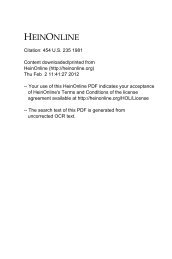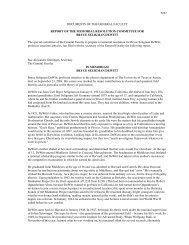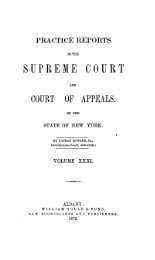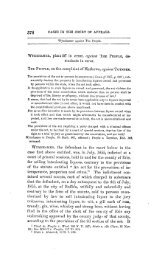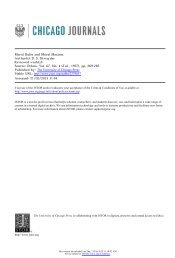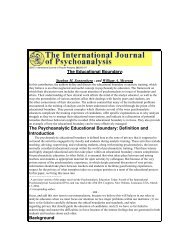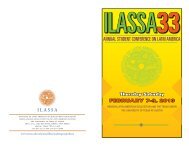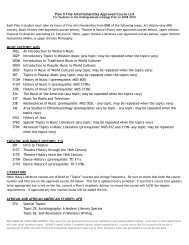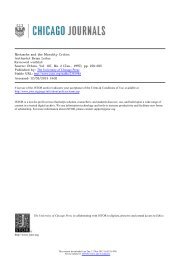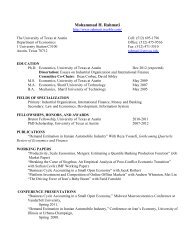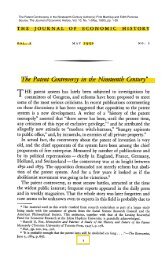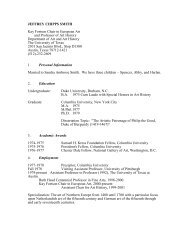Copyright by Gregory Krauss 2007 - The University of Texas at Austin
Copyright by Gregory Krauss 2007 - The University of Texas at Austin
Copyright by Gregory Krauss 2007 - The University of Texas at Austin
Create successful ePaper yourself
Turn your PDF publications into a flip-book with our unique Google optimized e-Paper software.
viol<strong>at</strong>ions <strong>by</strong> the Pinochet government. 120 <strong>The</strong> resolution marked a major reversal <strong>of</strong><br />
previous U.S. policy favoring quiet diplomacy. Schifter admitted as much. ''We go<br />
public when our quiet entre<strong>at</strong>ies are not responded to,'' Schifter told the press <strong>at</strong> a<br />
news conference in Geneva after the resolution had been proposed. 121<br />
<strong>The</strong> decision to pursue the resolution reflected both U.S. discontent with<br />
Chilean progress on human rights issues as well as Schifter’s preference for working<br />
in intern<strong>at</strong>ional human rights bodies. 122 Lister was probably not the impetus behind<br />
the resolution, but he helped its passage <strong>by</strong> securing support for it <strong>by</strong> the Chilean<br />
opposition. In February 1986, before the U.S. proposed the resolution, Lister<br />
consulted with opposition leader Martin Poblete, who provided comments on the<br />
draft. 123 In March, Schifter brought the resolution to the Geneva headquarters <strong>of</strong> the<br />
United N<strong>at</strong>ions Human Rights Commission, while Lister remained behind to work<br />
with the Chilean opposition residing in the United St<strong>at</strong>es. Most diplom<strong>at</strong>s in Geneva<br />
assumed th<strong>at</strong> Chilean democr<strong>at</strong>s would be against the U.S. resolution. 124 But Lister,<br />
because he had good rel<strong>at</strong>ionships with the Chilean opposition, was able to secure the<br />
opposition’s support; he also urged them to send their own represent<strong>at</strong>ive to Geneva,<br />
which they did. 125 Schifter announced after returning to the U.S. th<strong>at</strong> Lister had<br />
played a “key role” in obtaining support for the resolution, Lister recalled in 1993. 126<br />
On March 15, 1986, with the resolution passed, Eugenio Velasco came to the<br />
human rights bureau to pick up the final draft. 127 Velasco told Lister th<strong>at</strong> passage <strong>of</strong><br />
the resolution was one <strong>of</strong> the two most significant events for the democr<strong>at</strong>ic<br />
118



